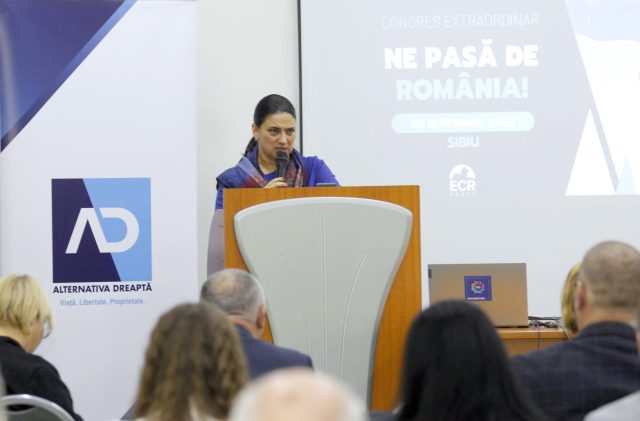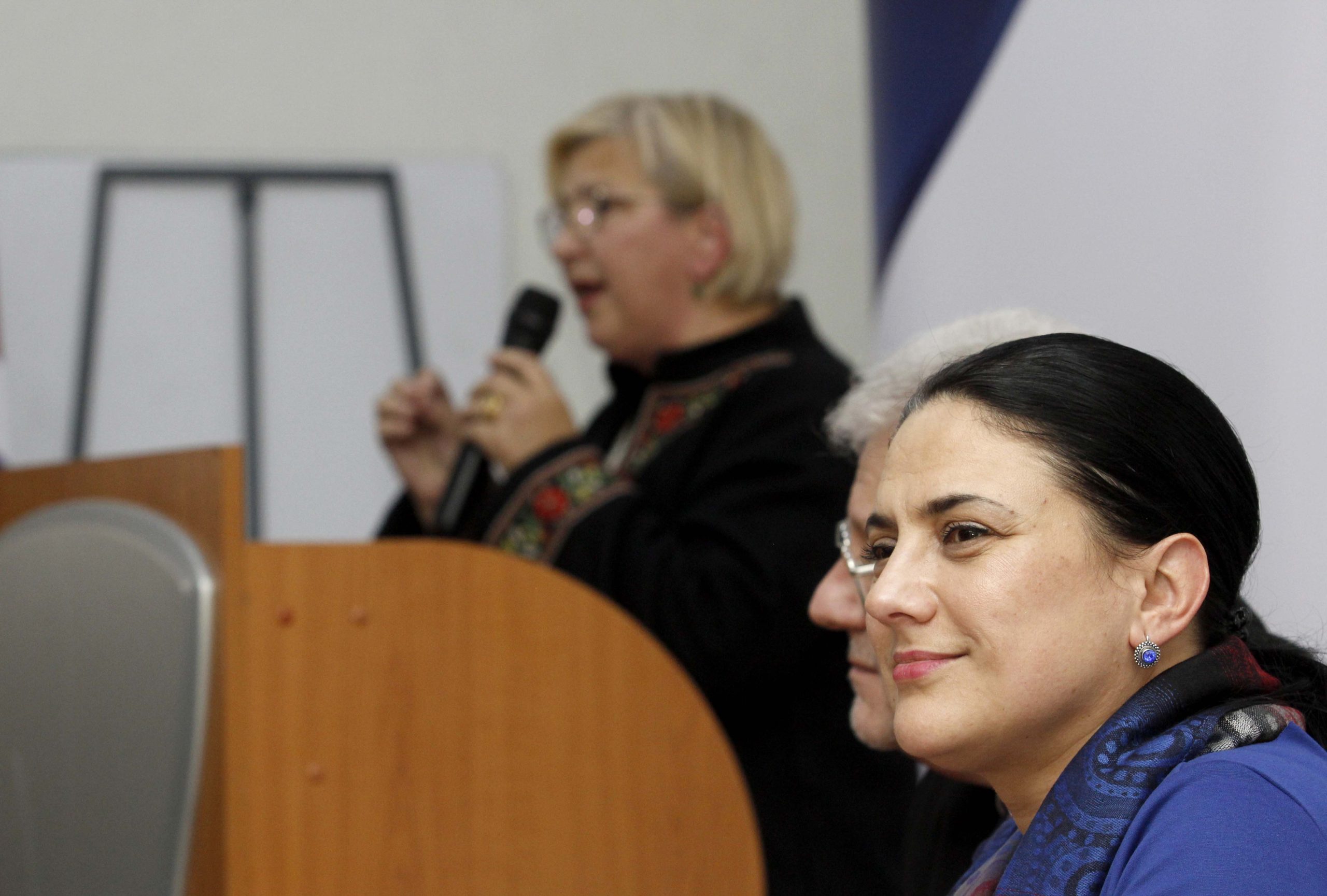
Four parties are currently claiming the status of a conservative party in Romania, with the leaders of each of these parties putting themselves forward as the linking force of an eventual alliance, a pole that would include all forces that claim to have conservative values. According to public outbursts, only Alternativa Dreapă can truly be considered a party with a conservative doctrine.
Two of these parties are political constructions created on the skeletons of parties that former President Traian Băsescu and people around him initiated and left behind, or rather abandoned. As for the other two self-declared conservative parties, one is the creation of the post-December liberal politician Ludovic Orban, quarreled with colleagues in the new PNL since the merger with Basescu’s PDL. The other is the surprise of the 2020 parliamentary elections, AUR, a political construction that achieved results labelled as “absurd” with an extremist and anti-EU discourse and attitudes.
An INSCOP poll in October 2021 showed that two-thirds of the Romanian population would vote for a traditionalist party that promotes the traditional family and religious values. Yet, all four political parties have put at the top of their list the values they promote for the traditional family. In this context, the battle to conquer the conservative spectrum, represented at the end of the 1990s by a party with left-wing leanings, and subsequently won without any problems by Traian Băsescu, who monopolised everything that meant traditionalist right, seems to have an important electoral stake for 2024.
The three political parties that, since the last parliamentary elections, have been vocal on the Romanian political scene, each of them taking a leading role in the coagulation of the conservative right are PMP, AUR and Forța Dreptei. The fourth political party that has recently entered the game in force and is on an upward image trend is Alternativa Dreaptă.

The former creation of ex-Liberal Democrat President Traian Băsescu and his blonde adviser Elena Udrea, the PMP, which has come to be represented by former PSD member Cristian Diaconescu, no longer enjoys parliamentary representation after the 2020 result, but still has local elected representatives here and there.
The AUR, accused of legionary sympathies, pro-Russian and anti-EU stances, is on an upward trend in the polls, with representation in parliament but no local elected representatives after missing the autumn 2019 election for organisational reasons. As for the Right Force, the party depends on the political image of former liberal leader Ludovic Orban, who left the PNL with 15 MPs, but attempts to recruit local elected representatives, have not proved very fruitful so far.
The leader of AUR and Cristian Diaconescu, the leader of PMP – both of them contested by some factions of the parties they lead – have been courting each other intensely in the last months of this year, but the result is not nearly what either of them has been claiming. Neither did the conservative pole, as Diaconescu demanded, nor the merger as Simion wants.
In this context, to which are added the tensions in AUR, where resignations and accusations of dictatorship against the supreme leader have multiplied on the scene of Romanian conservatism, the party led by Adela Mîrza, Alternativa Dreaptă, has entered “in force”. This party has announced that it has “swallowed” three resigning MPs from AUR (fed up with the dictatorial actions of leader Simion), thus going from a party without parliamentary representation to one with at least three independent voices in the Romanian Parliament. Inexistent on the political scene, the only politician the party has paraded is Toader Paleologu, a character known more as an intellectual than for his political achievements. The party was officially born in August 2019, by the decision of the Bucharest Court, which consented to the merger between M10 – Monica Macovei’s party – and the civic organization Forța Moldovei.
Beyond the political games that will or will not lead to the creation of a “conservative pole”, the attempts of international affiliation – some more aggressive, others less visible – of the self-declared Romanian conservative leaders seem interesting.
Of the four political parties, none of them is represented in any European parliamentary group. True, the PMP has inherited membership of the European People’s Party (EPP), but its representative in the European legislative forum is Traian Băsescu, who has officially abandoned the party. Although claiming affiliation to the European Conservatives and Reformists, both AUR and Alternativa Dreaptă are currently in negotiations with the conservative European parties. Gaining membership is further complicated by the fact that they have no MEP representation, as political analysts have pointed out.
The same goes for Ludovic Orban, who left the EPP after the new PNL, by virtue of its PDL origins, left the Alliance of Liberals and managed to join the largest group in the European Parliament, the EPP.
“Acceptance into the European conservative family would increase their credibility, but it is complicated even with the current members of the alliance because any attempt at European affiliation runs counter to the principles they promote, including national identity” – political scientist Ovidiu Voicu, referring to the AUR.
To get in the good graces of European conservative leaders, George Simion went to Madrid in February for the second attempt by far-right and European conservative leaders to form a joint group in the European Parliament. This despite not being invited to the event.
“From what I understand, he was in Madrid to meet with Romanians in the diaspora. He also invited me to such a meeting with Romanians in the diaspora, but outside the programme of our summit”, said the President of the PNTCD, Aurelian Pavelescu, who attended the first summit on this topic in Warsaw in December 2021.
In a statement to Free Europe, the AUR leader said he did not make it to the event because “a meeting of the parliamentary groups in the European Parliament was organised, Mr. Orban fresh out of the People’s group, those from the conservative group, ECR, and those from the extremist ID group. Only the parties with MEPs attended, we from AUR do not have MEPs yet, we will have them in 2024” and that “we are not interested at the moment, as we do not have MEPs”.
Which MEP represents Romania in the Group of European Conservatives and Reformists?
But there is a Romanian MEP in the Group of European Conservatives and Reformists. Cristian Terheș, who joined the EP on the PSD list, has made a right turn by declaring himself a representative of the PNȚCD, a party that has disappeared from the Romanian public scene. He is not the only one to have made this turn: a Greek Catholic priest who emigrated two decades ago to the USA, became visible in the country after entering politics, first by speaking out on behalf of the independence of the judiciary, as an anti-corruption fighter and critic of the PSD government of Liviu Dragnea.
Terheș has distinguished himself by fighting against the anti-covid vaccine, the Green Certificate and any preventive measures in the pandemic. In mid-November 2021, he held a press conference at the Chamber of Deputies. The theme of the conference being the same: the European tyranny that wants to enslave us through vaccine and certificate. Cristian Terheș’s accession to an MEP seat is due, some analysts claim, to the president of the PNȚCD, Aurelian Pavelescu, who would have cooperated with the PSD to send Terheș to the EP on that party’s lists.
Under Pavelescu’s leadership, the PNȚCD also distinguished itself by participating in the anti-EU summit of populists in Warsaw in December 2021.The PNȚCD President was pictured in the official photo of the Warsaw summit among the leader of France’s far-right Marine Le Pen, Hungarian Prime Minister Viktor Orban and the host of the event, the leader of Poland’s populist PiS party, Jaroslaw Kaczynki.
At the summit, the leaders of the nationalist parties promised to unite in the European Parliament on sovereignty and the migrant crisis, but failed to form a new alliance. At the end of the meeting, the participants signed a declaration accusing the EU and calling for more power for member states. Marine Le Pen hoped that it would be possible to form a single group in the European Parliament representing the strongest force in parliament after the centre-right European People’s Party (EPP). Two notable absentees from the Conservative summit were Matteo Salvini, leader of the Northern League, and Giorgia Meloni of Fratelli d`Italia. Salvini also officially rejected the creation of the new political group.
The ECR is currently the third largest group in the European Parliament, with 70 MEPs from 15 EU countries
Ideologically, the founding members of the ECR traditionally sat on the centre-right to right of the political spectrum with a liberal economic and anti-federalist outlook and an initial reluctance on the part of the Conservative Party to include hardline anti-immigration and ultra-nationalist parties. Like the centre-right European People’s Party (EPP), the founding members of the ECR largely support pro-liberal market ideas, with some of its MEPs maintaining links with think-tanks such as the Cobden Centre (as opposed to the more economic nationalist and anti-globalisation approach of other current and former Euro-critical groups such as the EFDD and Identity and Democracy). However, the EPP generally favours EU integration and enlargement, while the ECR opposes it.
In recent years, the group has come to contain a growing faction of nationalist, anti-immigration and right-wing populist movements, with some former ECR members arguing that the group has shifted considerably to the right over time. The shift to the right was increased following the UK’s withdrawal from the European Union, since the Conservative Party lost its representation in the European Parliament.



 Subscribe
Subscribe